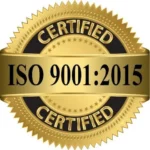Haemorrhoids, often referred to as “piles,” are swollen and inflamed veins in the rectum and anus that result in discomfort, bleeding, and sometimes pain during bowel movements. They can occur both internally, inside the rectum, or externally, under the skin around the outside of the anal opening.Any damage or injury to such swelled veins causes them to come out of the anus.
The diagnosis can be done by proctology experts like Dr. Kamathe’s Piles clinic, we can diagnose haemorrhoids based on a physical examination of the anus and rectum. In some cases, further diagnostic procedures may be recommended to rule out other potential causes of symptoms.
Our proctology specialists are committed to identifying, examining, and managing a variety of anorectal disorders. Through continuous study and research.
In this Blog we will Explore what are different aspects to understand the causes and symptoms of piles with the guidance of Dr. Kamthe’s Piles Clinic.
Causes of Piles –
- Straining During Bowel Movements: One of the most common causes is straining during bowel movements. This can happen due to constipation or the effort required to pass hard stools.
- Chronic Constipation or Diarrhoea: Conditions that lead to prolonged periods of constipation or diarrhoea can contribute to the development of haemorrhoids. Straining during bowel movements is a common factor in both cases.
- Pregnancy and Childbirth: Pregnant women are more prone to developing haemorrhoids due to increased pressure on the veins in the pelvic area. The strain of childbirth can also contribute to the development or worsening of haemorrhoids.
- Obesity: Being overweight or obese increases the pressure on the veins in the rectum and anus, making the development of haemorrhoids more likely.
- Sitting for Long Periods: Prolonged sitting, especially on the toilet, can contribute to the development of haemorrhoids. Sitting for extended periods puts pressure on the rectal veins.
- Ageing: The risk of developing haemorrhoids tends to increase with age. The tissues supporting the veins in the rectum and anus may weaken over time, making haemorrhoids more likely.
- Heredity: There may be a genetic component to the development of haemorrhoids. If your family has a history of haemorrhoids, you may be more predisposed to developing them.
- Low-Fiber Diet: A diet low in fibre can lead to constipation and hard stools, increasing the risk of straining during bowel movements and the development of haemorrhoids.
- Anal Intercourse: Engaging in anal intercourse, particularly if it is forceful or traumatic, can contribute to the development of haemorrhoids.
- Heavy Lifting: Regularly lifting heavy objects can increase abdominal pressure, which may contribute to the development or exacerbation of haemorrhoids.
Symptoms of piles –
- Bleeding: Bright red blood on toilet paper after wiping. Blood in the toilet bowl after a bowel movement. Blood may be seen on the surface of the stool.
- Itching and Irritation: Itching or irritation in the anal region. Discomfort or a feeling of fullness in the rectum.
- Pain or Discomfort: Pain or discomfort, especially during or after bowel movements. External haemorrhoids may cause pain or discomfort when sitting.
- Swelling: Swelling or a lump near the anus, which may be felt or seen externally. Swelling can lead to a feeling of pressure in the rectum.
- Prolapse: In more severe cases, internal haemorrhoids may prolapse or protrude outside the anal opening, especially during bowel movements. Prolapsed haemorrhoids may need to be pushed back inside manually.
- Mucus Discharge: Some people with haemorrhoids may experience mucus discharge from the anus.
- Incomplete Bowel Movements: The feeling of incomplete bowel movements, as if there is still stool left to pass even after a bowel movement.
It’s important for individuals experiencing symptoms of haemorrhoids to consult with a healthcare professional for an accurate diagnosis and appropriate treatment recommendations. While haemorrhoids are common and often not serious, persistent or severe symptoms should be evaluated by a healthcare provider.
Our Motto is “We Care, We Cure”. Our team of professionals is dedicated to delivering the best services possible to ease your pain and suffering since we understand how diseases and conditions are always changing. The therapies offered at our hospital not only facilitate early resumption of daily activities but also help patients minimize financial losses at their workplaces. With our exclusive combination, patients are guaranteed quality treatment that targets the underlying causes of their anorectal problems.




